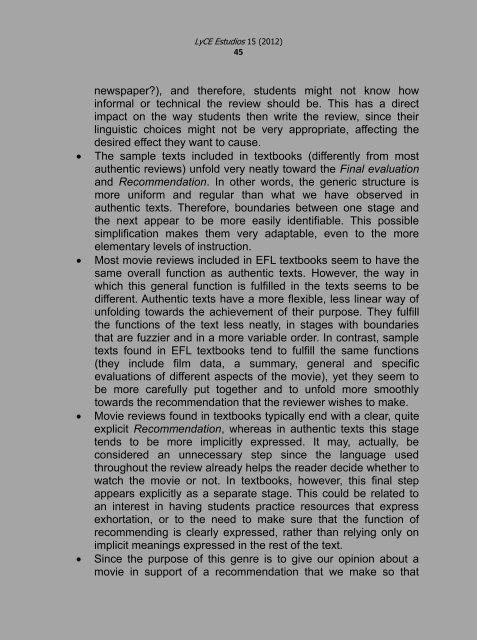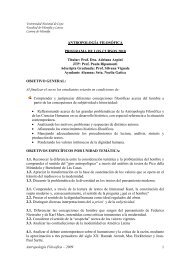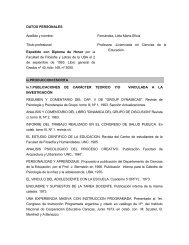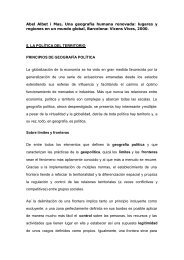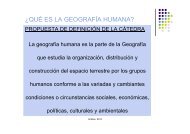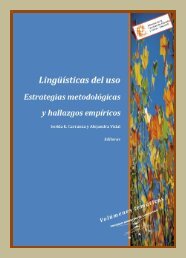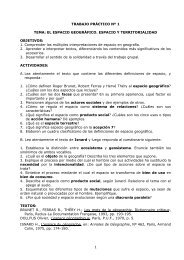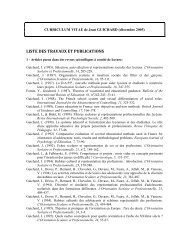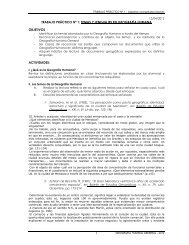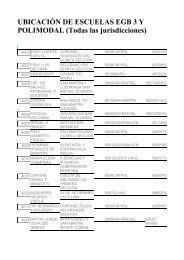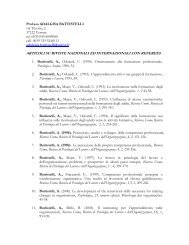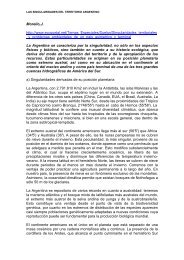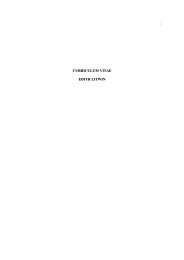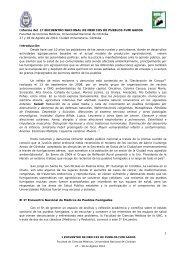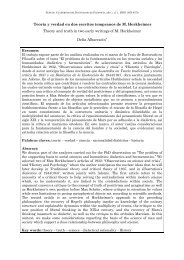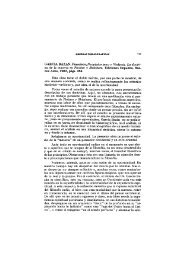LyCE Estudios - Facultad de Filosofía y Letras - Universidad ...
LyCE Estudios - Facultad de Filosofía y Letras - Universidad ...
LyCE Estudios - Facultad de Filosofía y Letras - Universidad ...
You also want an ePaper? Increase the reach of your titles
YUMPU automatically turns print PDFs into web optimized ePapers that Google loves.
<strong>LyCE</strong> <strong>Estudios</strong> 15 (2012)<br />
45<br />
newspaper?), and therefore, stu<strong>de</strong>nts might not know how<br />
informal or technical the review should be. This has a direct<br />
impact on the way stu<strong>de</strong>nts then write the review, since their<br />
linguistic choices might not be very appropriate, affecting the<br />
<strong>de</strong>sired effect they want to cause.<br />
The sample texts inclu<strong>de</strong>d in textbooks (differently from most<br />
authentic reviews) unfold very neatly toward the Final evaluation<br />
and Recommendation. In other words, the generic structure is<br />
more uniform and regular than what we have observed in<br />
authentic texts. Therefore, boundaries between one stage and<br />
the next appear to be more easily i<strong>de</strong>ntifiable. This possible<br />
simplification makes them very adaptable, even to the more<br />
elementary levels of instruction.<br />
Most movie reviews inclu<strong>de</strong>d in EFL textbooks seem to have the<br />
same overall function as authentic texts. However, the way in<br />
which this general function is fulfilled in the texts seems to be<br />
different. Authentic texts have a more flexible, less linear way of<br />
unfolding towards the achievement of their purpose. They fulfill<br />
the functions of the text less neatly, in stages with boundaries<br />
that are fuzzier and in a more variable or<strong>de</strong>r. In contrast, sample<br />
texts found in EFL textbooks tend to fulfill the same functions<br />
(they inclu<strong>de</strong> film data, a summary, general and specific<br />
evaluations of different aspects of the movie), yet they seem to<br />
be more carefully put together and to unfold more smoothly<br />
towards the recommendation that the reviewer wishes to make.<br />
Movie reviews found in textbooks typically end with a clear, quite<br />
explicit Recommendation, whereas in authentic texts this stage<br />
tends to be more implicitly expressed. It may, actually, be<br />
consi<strong>de</strong>red an unnecessary step since the language used<br />
throughout the review already helps the rea<strong>de</strong>r <strong>de</strong>ci<strong>de</strong> whether to<br />
watch the movie or not. In textbooks, however, this final step<br />
appears explicitly as a separate stage. This could be related to<br />
an interest in having stu<strong>de</strong>nts practice resources that express<br />
exhortation, or to the need to make sure that the function of<br />
recommending is clearly expressed, rather than relying only on<br />
implicit meanings expressed in the rest of the text.<br />
Since the purpose of this genre is to give our opinion about a<br />
movie in support of a recommendation that we make so that


